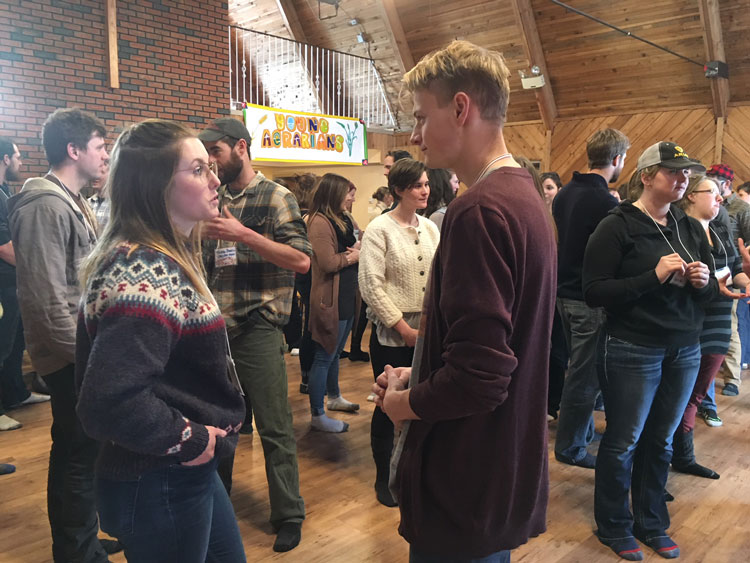By Naomi Mahaffy
Personal relationships are often important catalysts for change within individuals, communities, and systems. A supportive network can make a big difference for an aspiring change-maker seeking advice, tools, and community.
The Young Agrarians is just that--a friendly, supportive network made up of rural and urban farmers, market gardeners, community groups, and others seeking to promote and inspire ecological agriculture. Through relationships, they’re slowly helping to shift the dynamics of our food systems. I chatted with Dana Penrice (Young Agrarians Prairie Program Manager) to learn more about their network.
Why young agrarians?
Canada’s farming population has dramatically changed over the last few decades. Many retiring farmers don’t have kids who are prepared to take over the family farm. At the same time, people with no farming background are increasingly getting involved in agriculture; in 2015, a survey found that 68% of aspiring and new farmers don’t have a farming background (National New Farmers Coalition, 2015). These new farmers (“young agrarians”) are diverse and don’t fit our classic farmer stereotypes. They increasingly include women, visible minorities, and LGBTQ. They might not have the expertise or resources to jump into large-scale farming operations, but they often care deeply about using more sustainable and holistic farming and ranching practices. The Canadian public, too, has changing demands and expectations of our local food system.
The Young Agrarians started in BC in 2012 as a response to these changing demographics and the need to re-weave rural fabric. In 2016, it partnered with Organic Alberta to start an Alberta chapter. This is a participatory, fun, and supportive community, offering a range of ways for young or new farmers to engage--from casual mixers to an apprenticeship program.
How does it support change-making?
Young Agrarians get to know each other at a mixer event.
Many young agrarians are change-makers. They are working to make farming practices more sustainable, but might find the world of farming overwhelming to navigate. Young Agrarians gives them a community in which they can learn from others’ experiences in agriculture, marketing, land access, and more. The network has an online platform with relevant tools and resources, and uses social media to help young agrarians connect with each other. In Alberta, the network hosts mixers in which people can show up, share their needs and opportunities, and connect with like-minded people.
Our existing systems can be challenging for new farmers, particularly when complex challenges like climate change and changing demographics are added to the mix. Young Agrarians is working to help people re-think what farming might look like in the future: a farmer may not always own the land they’re working on, for example, and approaches like cooperatives may be needed to help new farmers share resources. Young Agrarians is experimenting with “transition cafes” and land access workshops, where older and newer generations of farmers can engage together around some of these complex issues.
What has Young Agrarians learned?
Some gems Dana shared with me:
Don’t underestimate the value of a simple mixer. Personal relationships matter.
Changing farming paradigms while also changing farming generations is incredibly complex. We need skilled facilitators who can engage meaningfully and empathetically with older and newer farmers. Change will not happen overnight.
Farmers will burn out without supportive communities where they can learn, share risk, and have fun together.
ABSI Connect works to connect, align, celebrate, strengthen, and learn from Albertan change-makers who are finding innovative ways to address the complex problems their communities face. Do you have a story, idea, or insight you’d like to share with the ABSI Connect community? Let us know.


